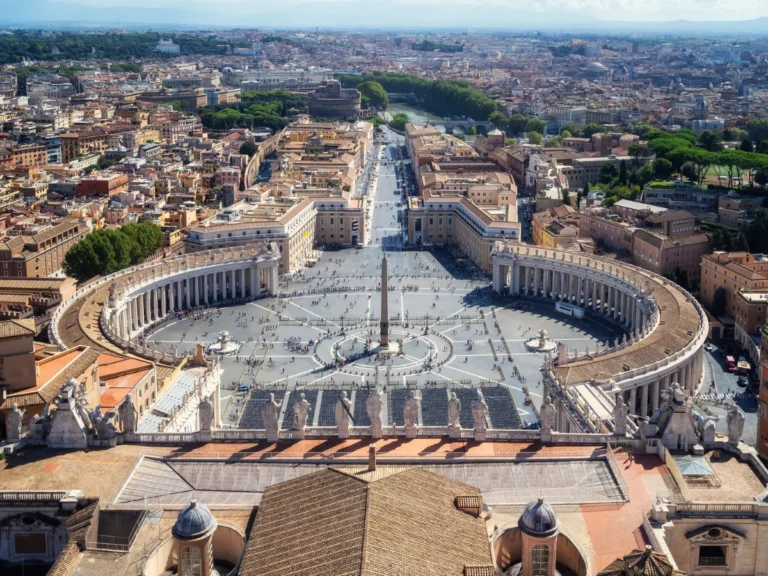Lucius Junius Brutus led the overthrow of the monarchy
Lucius Junius Brutus led the overthrow of the monarchy, establishing the Republic. His courage and integrity inspired the Roman people. Feigning idiocy, he avoided suspicion under Tarquin’s rule. Brutus rallied against the tyranny after Lucretia’s tragedy, expelling the Tarquins. As one of the first consuls, he exemplified republican principles. Despite his noble lineage, he condemned his sons for treason, emphasizing his commitment to the rule of law. Brutus’s legacy endures as the founding father of the Republic, symbolizing the eternal struggle for freedom against tyranny.

Ancient Rome: Lucius Junius Brutus led the overthrow of the monarchy
Lucius Junius Brutus, an iconic figure in the annals of Roman history, played a pivotal role in the establishment of the Roman Republic. From his early life to his remarkable leadership during Rome’s transition from monarchy to republic, Brutus’s legacy continues to resonate through the ages.
Early Life and Background
Born into the illustrious Junius clan, Lucius Junius Brutus grew up amidst the political intrigue and power struggles of ancient Rome. Despite his noble lineage, Brutus experienced tragedy at a young age, witnessing the tyranny of King Tarquin the Proud firsthand. This exposure ignited a fervent desire within Brutus for justice and liberation from monarchical oppression.
The Overthrow of Tarquin the Proud
In the wake of the brutal rape of Lucretia by Tarquin’s son, Sextus, Brutus emerged as a beacon of resistance against the tyrannical regime. His impassioned call for justice galvanized the Roman populace, leading to a revolt against the despotic rule of the Tarquins. Brutus’s courage and determination were instrumental in rallying support for the overthrow of the monarchy. Culminating in the expulsion of Tarquin the Proud and his family from Rome.
The Formation of the Roman Republic
Following the ousting of the Tarquins, Lucius Junius Brutus assumed a prominent role in shaping the destiny of Rome. Alongside his co-consul, Lucius Tarquinius Collatinus, Brutus spearheaded the establishment of a new political order based on principles of liberty, equality, and the rule of law. This marked the birth of the Roman Republic, a revolutionary experiment in governance that would endure for centuries.
Brutus’s Leadership and Statesmanship
As one of the first consuls of the Roman Republic, Lucius Junius Brutus exemplified the virtues of selflessness, integrity, and devotion to the common good. His unwavering commitment to republican ideals earned him the admiration and respect of his fellow citizens. Cementing his legacy as a founding father of Rome. Brutus’s astute leadership and statesmanship laid the groundwork for the flourishing of the fledgling republic.
The Sacrifice of Family for the Sake of Rome
Despite his familial ties to the deposed Tarquin dynasty, Lucius Junius Brutus remained steadfast in his allegiance to the newly formed republic. In a poignant display of patriotism, Brutus ordered the execution of his own sons after discovering their involvement in a conspiracy to restore the monarchy. This selfless act, known as the “Brutus Pater Patriae,” epitomized his unwavering dedication to the principles of liberty and the greater good of Rome.
Legacy and Influence
The legacy of Lucius Junius Brutus endures as a symbol of Roman virtue and republican values. His decisive actions paved the way for the ascendancy of the Roman Republic as a beacon of democracy and governance. Brutus’s name became synonymous with liberty and resistance to tyranny. Inspiring future generations of Romans to uphold the principles of justice and equality.
Conclusion
In the annals of Roman history, Lucius Junius Brutus stands as a towering figure whose contributions shaped the course of the republic. From his courageous stand against tyranny to his selfless sacrifice for the sake of Rome, Brutus exemplified the highest ideals of citizenship and leadership. His legacy serves as a testament to the enduring power of conviction and the triumph of liberty over oppression.



